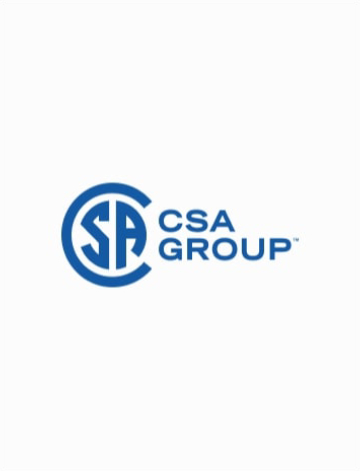CSA Preface
This is the first edition of CSA/ANSI C22.2 No. 19085-11, Woodworking machines — Safety — Part 11: Combined machines, which is an adoption, with North American deviations, of the identically titled ISO (International Organization for Standardization) Standard 19085-11 (first edition, 2020-03). It is one in a series of Standards issued by CSA Group under Part II of the Canadian Electrical Code.
For brevity, this Standard will be referred to as CSA/ANSI C22.2 No. 19085-11 throughout.
This Standard covers the safety requirements and measures for combined machines.
The North American deviations are intended to meet product requirements and to align with the Canadian Electrical Code, Part I (Canada) and the National Electrical Code (United States).
This Standard is intended to be used in conjunction with CSA/ANSI C22.2 No. 19085-1:19, Woodworking machines — Safety — Part 1: Common requirements (adopted ISO 19085-1:2017, with North American deviations).
This Standard is considered suitable for use for conformity assessment within the stated scope of the Standard.
This Standard was reviewed for North American adoption by the CSA Subcommittee on Electrical Equipment for Woodworking Machinery, under the jurisdiction of the CSA Technical Committee on Industrial Products and the CSA Strategic Steering Committee on Requirements for Electrical Safety, and has been formally approved by the Technical Committee.
This Standard has been developed in compliance with Standards Council of Canada requirements for National Standards of Canada. It has been published as a National Standard of Canada by CSA Group.
This Standard has been approved by the American National Standards Institute (ANSI) as an American National Standard.
Scope
This document gives the safety requirements and measures for stationary and displaceable combined woodworking machines, having at least two separately usable working units and with manual loading and unloading of the workpiece, hereinafter referred to as machines. The integrated working units can be of these types only:
— a sawing unit;
— a moulding unit;
— a planing unit.
The machines are designed to cut solid wood and material with similar physical characteristics to wood.
NOTE 1 For the definitions of stationary and displaceable machines, see ISO 19085-1:2017, 3.4 and 3.5.
This document deals with all significant hazards, hazardous situations and events as listed in Clause 4, relevant to the machines, when operated, adjusted and maintained as intended and under the conditions foreseen by the manufacturer including reasonably foreseeable misuse. Also, transport, assembly, dismantling, disabling and scrapping phases have been taken into account.
NOTE 2 For relevant but not significant hazards, e.g. sharp edges of the machine frame, see ISO 12100:2010.
This document does apply to machines also equipped with the devices/additional working units listed in the Scopes of ISO 19085-5:2017, ISO 19085-6:2017, ISO 19085-7:2019 and ISO 19085-9:2019.
This document does not apply to:
a) machines incorporating only a planing unit and a mortising device;
NOTE 3 Such machines are dealt with in ISO 19085-7:2019.
b) combined machines incorporating a band saw unit;
c) machines with a mortising unit with a separate drive other than the planing unit drive;
d) machines intended for use in potentially explosive atmosphere;
e) machines manufactured before the date of its publication as an International Standard.
1DV Modify Clause 1 by adding the following to the first paragraph:
This Standard applies to combined woodworking machines that are intended to be installed and used in accordance with the National Electrical Code (NFPA 70) in the United States and the Canadian Electrical Code, Part I (CSA C22.1) in Canada.
In Canada, general requirements applicable to these machines are provided in CSA C22.2 No. 0.


